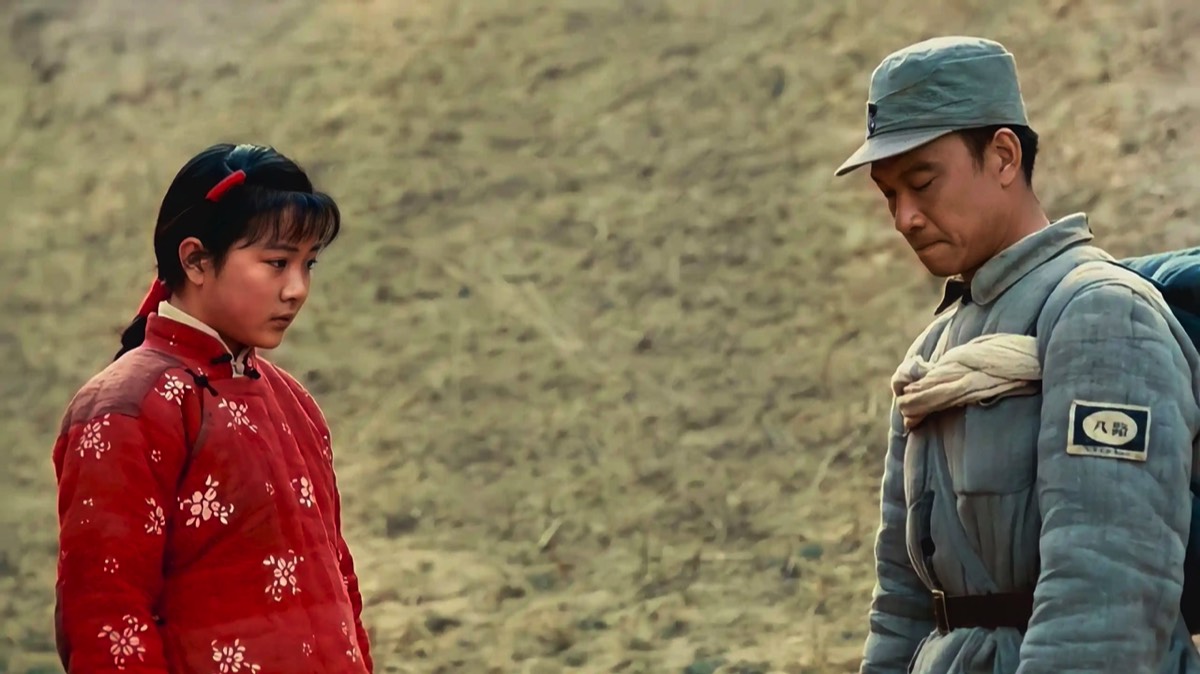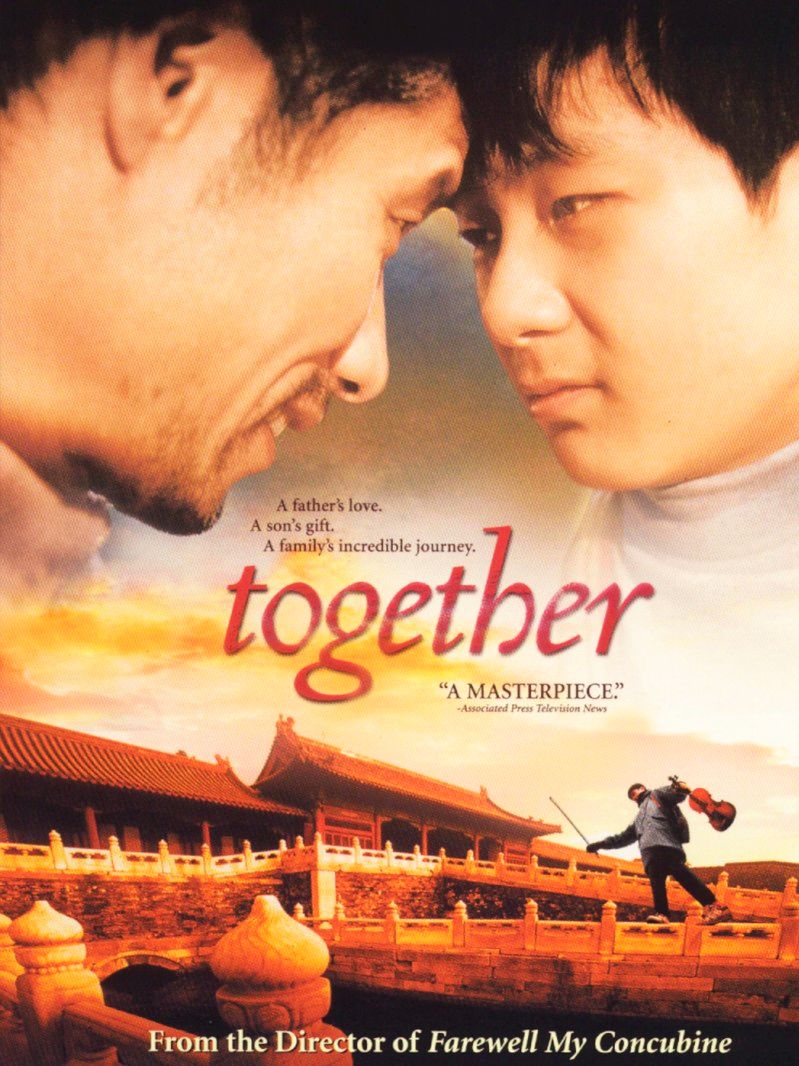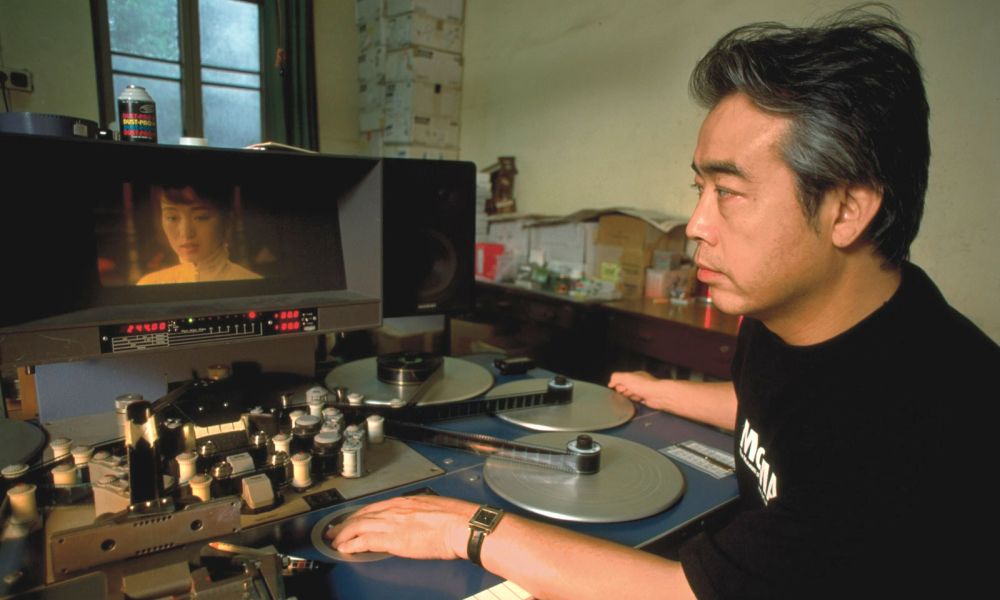"Though working in a country noted for its aesthetic, economic and ideological conservatism, and in a film industry riven with dissent, he has so far managed to make deeply personal films of a wide moral and political relevance." - Geoff Andrew (Film Handbook, 1989)
Chen Kaige
Director
(1952- ) Born August 12, Beijing, China
(1952- ) Born August 12, Beijing, China
Key Production Country: China
Key Genres: Drama, Rural Drama, Period Film, Political Drama, Romantic Epic, Psychological Drama
Key Collaborators: Gu Changwei (Cinematographer), Pei Xiaonan (Editor), Zhao Jiping (Composer), Qu Xiaosong (Composer), Zhang Yimou (Cinematographer), He Qun (Production Designer)
Key Genres: Drama, Rural Drama, Period Film, Political Drama, Romantic Epic, Psychological Drama
Key Collaborators: Gu Changwei (Cinematographer), Pei Xiaonan (Editor), Zhao Jiping (Composer), Qu Xiaosong (Composer), Zhang Yimou (Cinematographer), He Qun (Production Designer)
"He is one of the most prominent and accomplished of the post-Cultural Revolution Chinese directors. Son of Chen Huaikai, also a well-known film director, he was forced at 14 by the Cultural Revolution to interrupt school and work as a rubber plantation farmer, soldier, and factory hand. He entered the Beijing Film Academy in 1978… Chen's films are renowned both for their emotional delicacy and for their lavish spectacle, using an extensive palette of color and state-of-the-art film technology. His cinematographer for his first two films was Zhang Yimou." - The Film Encyclopedia, 2012
"The movies of the Fifth Generation filmmaker cover several eras of Chinese society, ranging from pre-World War Two in Farewell My Concubine (1993) to today’s social media of Caught in the Web (2012). More importantly, Chen is a key figure in elevating Chinese cinema to the world stage, starting in 1984 — when his first film, Yellow Earth, shattered the tyranny of state-sponsored propaganda films — then in 1993 when he captured the Palme d’Or at Cannes for Concubine. The grand irony is that these films couldn’t get made today." - Allan Tong (Filmmaker, 2013)

Yellow Earth (1984)
"Chen was a leading exponent of the "Fifth Generation" of film-makers, whose work after the Chinese Cultural Revolution earned a deserved international reputation. When Chen Kaige's Yellow Earth (1984) was first shown in the west, it altered western perceptions about Chinese cinema… The often strong political statements in his films have caused the communist regime to ban some of his work." - Ronald Bergan (Film - Eyewitness Companions, 2006)
"Since making an ill-fated attempt at Hollywood with 2002’s Killing Me Softly, Chen Kaige has slipped further and further out of relevance. Now even his elegant sense of style—the one thing keeping later efforts like Forever Enthralled afloat—seems to be slipping away." - Ignatiy Vishnevetsky (The A.V. Club, 2013)
"Chen Kaige is, with Zhang Yimou, the leading voice among the Fifth Generation of Chinese filmmakers, the first group of students to have graduated following the reopening of the Beijing Film Academy in 1978 after the depredations of the Cultural Revolution… The majority of his films constitute an intelligent and powerfully felt meditation on recent Chinese history, within which, for him, the Cultural Revolution remains a defining moment. ‘‘It made,’’ he has said, ‘‘cultural hooligans of us.’’ He has a reputation within China as a philosophical director, and his style is indeed marked by a laconic handling of narrative and a classical reticence. This is largely deceptive: underneath is an unyielding anger and unflinching integrity." - Verina Glaessner (International Dictionary of Films and Filmmakers, 2000)
"It's been a question mark for a long time. How can I make a film for both a Chinese audience and a western audience? Will they receive the film in the same way? I don't think I can do that. With the cultural difference between East and West, I cannot make everyone happy. But the only thing I knew that I could only follow my heart, to tell a story from my heart. That's the priority instead of being influenced by different temptations, like getting awards or commercial success." - Chen Kaige
Selected Filmography
{{row.titlelong}}
Chen Kaige / Favourite Films
Apocalypse Now (1979) Francis Ford Coppola, Citizen Kane (1941) Orson Welles, The 400 Blows (1959) François Truffaut, The Godfather (1972) Francis Ford Coppola, Intolerance (1916) D.W. Griffith, Lawrence of Arabia (1962) David Lean, Raging Bull (1980) Martin Scorsese, Rashomon (1950) Akira Kurosawa, Taxi Driver (1976) Martin Scorsese, Yellow Earth (1984) Chen Kaige.
Source: Sight & Sound (1992)
Apocalypse Now (1979) Francis Ford Coppola, Citizen Kane (1941) Orson Welles, The 400 Blows (1959) François Truffaut, The Godfather (1972) Francis Ford Coppola, Intolerance (1916) D.W. Griffith, Lawrence of Arabia (1962) David Lean, Raging Bull (1980) Martin Scorsese, Rashomon (1950) Akira Kurosawa, Taxi Driver (1976) Martin Scorsese, Yellow Earth (1984) Chen Kaige.
Source: Sight & Sound (1992)
Chen Kaige / Fan Club
Jia Zhangke, Li Cheuk-to, Tony Rayns, Ann Hui, Stephen Teo, Pam Cook, Aruna Vasudev, Michael Berry, Bérénice Reynaud, Peter Rist, Shelly Kraicer, Sam Ho.
Jia Zhangke, Li Cheuk-to, Tony Rayns, Ann Hui, Stephen Teo, Pam Cook, Aruna Vasudev, Michael Berry, Bérénice Reynaud, Peter Rist, Shelly Kraicer, Sam Ho.
"Fan Club"
These film critics/filmmakers have, on multiple occasions, selected this director’s work within film ballots/lists that they have submitted.
These film critics/filmmakers have, on multiple occasions, selected this director’s work within film ballots/lists that they have submitted.


